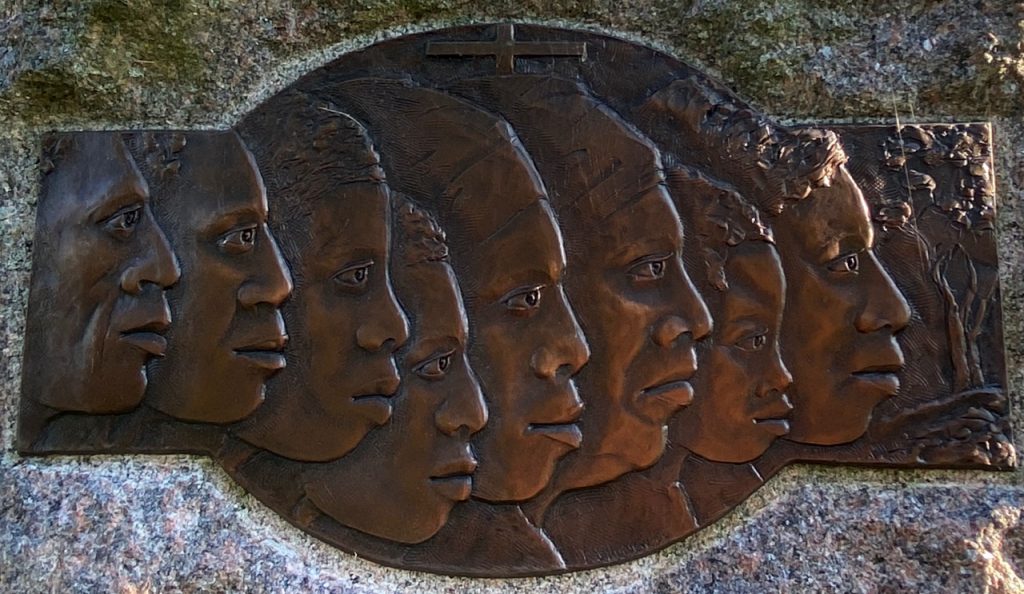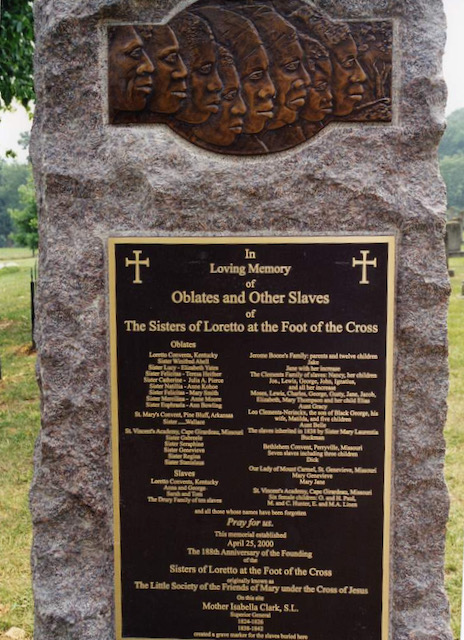‘We Say Their Names’: Loretto Seeks Forgiveness, Reconciliation for Participating in System of Enslavement
Posted on October 17, 2022, by Loretto Community

Photo by Donna Mattingly
God who wishes to work with us and who counts on our cooperation, can also bring good out of the evil we have done.
Pope Francis, Laudato Si’, #80
Look back in history – slave ships arrived in 1619 and traded slaves for provisions. Their labor was needed to clear fields, plant crops and build homes. Even though the ethics of slavery came under scrutiny, the charge went unheeded.
Joan Campbell SL, “Loretto: An Early American Congregation in the Antebellum South,” 2015
More than 70 human beings were enslaved at Loretto houses in the 19th century. Some came as dowry brought by sisters, some were gifts to the congregation and others were contracted out to pay debts. Though institutional slavery was abolished by the 13th Amendment in 1865, the stain of prejudice and racism lies at the root of so many unjust systems in our world today.

File photo.
As members of Loretto, we acknowledge that, in our history, we abused God’s creation by our participation in the unjust system of slavery. We are truly sorry for the harm we have done, and we humbly ask forgiveness of those persons who were enslaved by our early congregation.
In the Jubilee Year 2000, Loretto dedicated a memorial at the Motherhouse in Nerinx, Ky., listing names of those enslaved persons as a symbol of our repentance and desired reconciliation with the African-American community and all who have been harmed by slavery through the generations.
In November 2021 the Loretto Community overwhelmingly affirmed a Proposal to Explore Reparation Actions. We do not explore reparations to forget our past or to acknowledge our present racial attitudes or actions. Rather it is to acknowledge them, to seek forgiveness, to heal and to live with a change of heart expressed in our actions of reparations.
In loving memory, we stand at the foot of the cross and we say their names.
This week on Loretto’s Facebook page, please read the history and stories of “Examining Loretto’s Slaveholding.”
